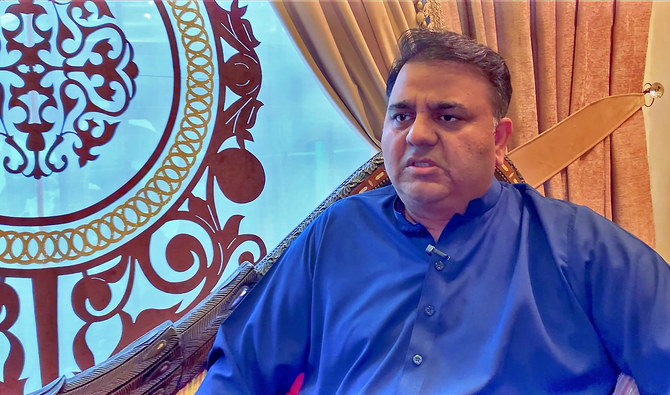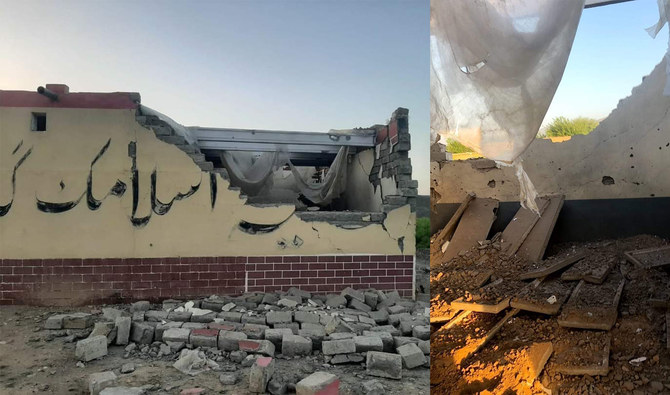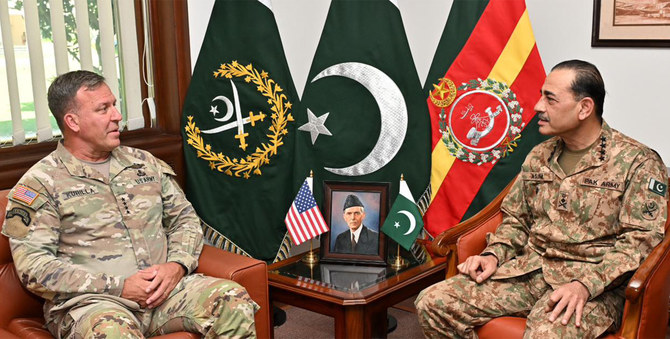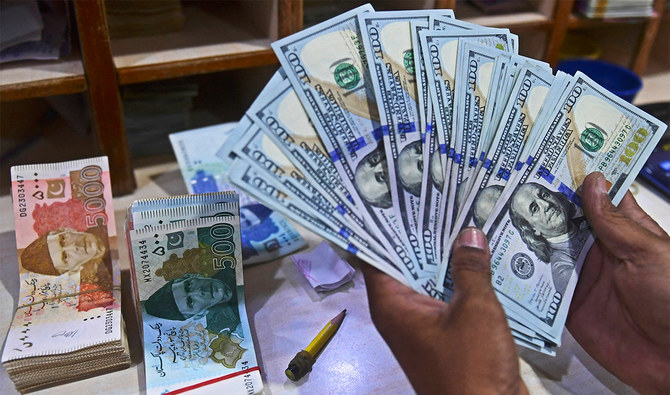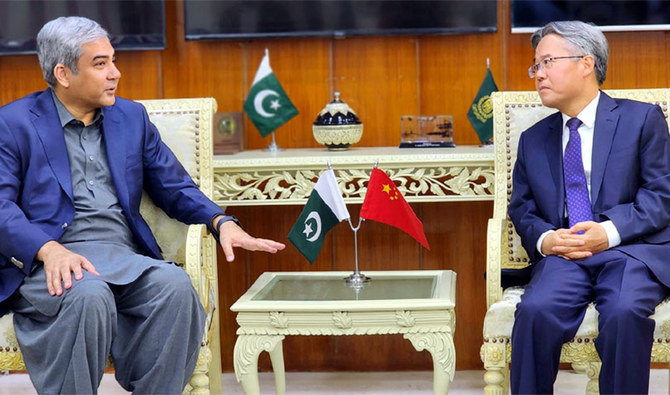LAHORE: A top leader of former prime minister Imran Khan’s Pakistan Tehreek-e-Insaf (PTI) said on Saturday the party and its leaders’ recent remarks about a serving major general were aimed at criticizing the “illegal actions” of an individual officer and should not be seen as an attack on the military as an institution.
The comments by close Khan aide Chaudhry Fawad Hussain came a day after the ex-premier held a press conference and said a gun attack in which he was injured on Thursday was plotted by three officials: Pakistani PM Shehbaz Sharif, Interior Minister Rana Sanaullah and ISI director-general for counter intelligence, Major General Faisal Naseer. No evidence has so far been provided by the PTI to support the accusations.
Khan was leading a dayslong protest march to the capital from Lahore when he was injured in firing on his motorized convoy in Wazirabad, about 200km from the capital.
Ever since his ouster from power in a parliamentary no-trust vote in April, the PTI chief has blamed the military for not foiling what he described as a “foreign conspiracy” to remove him from Pakistan’s top political office. The military has repeatedly denied the charge.
In an interview with Arab News at his home in Lahore, Hussain said the PTI “jealously guards” the country’s institutions, among which the military was the most important.
“I am unable to understand, and even the people of Pakistan, why individuals consider themselves above criticism, why individuals consider themselves above the law,” he said.
“This is not about the institution … This is about [an] individual’s actions, the illegal actions.”
The military’s media wing has already issued a strongly worded statement on Khan’s accusations against Maj Gen Naseer, calling them “baseless and irresponsible” and saying the army had requested the government to investigate the matter and initiate legal action against those responsible for making “false accusations against the institution and its officials without any evidence whatsoever.”
Hussain said Khan and the PTI’s struggle was aimed at establishing rule of law in the country.
“No institution is bigger than Pakistan and this is what we are fighting for,” he said.
Asked if the initial police report, called the First Information report (FIR), about the gun attack had still not been registered due to a conflict over included Naseer’s name among those charged for the crime, Hussain agreed.
“Unfortunately, that’s true,” he said.
“It never happens that a person [Khan] on whom an assassination attempt is made, who is injured that badly, he is not able to register an FIR,” the politician said, adding that the FIR must be registered as the first legal step and then an investigation would follow.
“Unfortunately, it hasn’t been registered despite [the fact] that we have a government in Punjab,” he added.
In response to a question about whether Khan would be open to the proposal of an interim administration if the Sharif government stepped down and elections were held according to the usual schedule next year, the PTI leader said:
“Will Pakistan’s economy sustain this long a period of sustainability? The answer is no.”
Hussain said if Khan had been assassinated on Thursday, it would have been a major blow not just for the PTI but the entire country.
“There is no other leader [of national stature] in Pakistan,” he said. “From Karachi to Lahore, there’s only one leader and that leader is Imran Khan.”
Hussain said Khan’s anti-government march would regain momentum once the PTI chief recovered and announced his return to the streets.
“The day Imran Khan will again be on the container and leading the long march, you will see the momentum will be back,” he said. “There’s no two opinions about it.”
Hussain denied that Khan had intentionally delayed his arrival to the federal capital during the protest march to mount pressure on the government ahead of Saudi Crown Prince Mohammed bin Salman’s visit to Pakistan, tentatively scheduled for mid to late November.
“Actually, we never knew [the schedule of the visit],” Hussain said. “Even now we don’t know the dates of his visit, so this is not true.”



